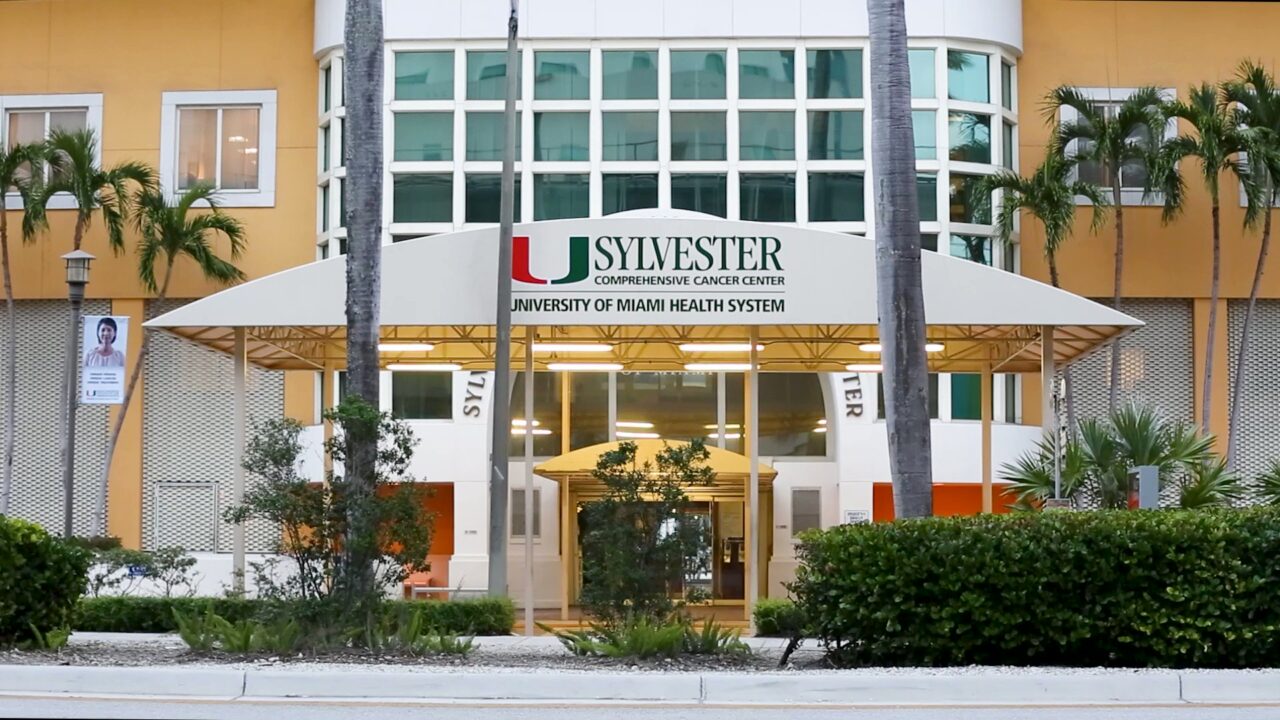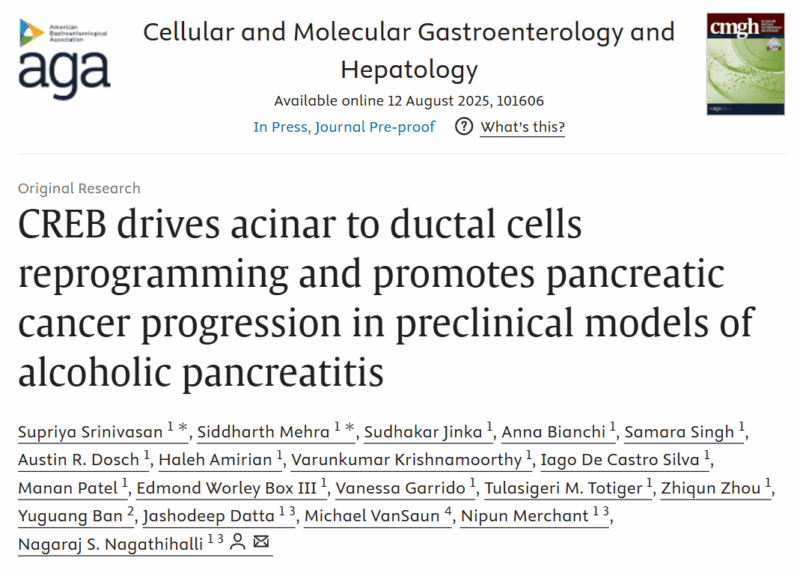
Breaking the Link Between Alcohol Use and Pancreatic Cancer
Model provides a better understanding of how chronic inflammation related to alcohol consumption accelerates pancreatic cancer development
Despite increasing evidence linking alcohol consumption to cancer, little is known about the biological mechanisms behind the association. A new study, published today in Cellular and Molecular Gastroenterology and Hepatology, suggests that inhibiting a cellular molecule called CREB might thwart pancreatic tumor development in response to alcohol.
“Our model serves as an important platform for understanding how chronic inflammation related to alcohol consumption accelerates the development of pancreatic cancer,” said Siddharth Mehra, Ph.D., a scientist at Sylvester Comprehensive Cancer Center, and first author on the study.

Chronic, high alcohol use damages acinar cells in the pancreas, specialized cells that produce digestive enzymes. The damage, in turn, causes the cells’ enzymes to increase inflammation in the tissue, exacerbating damage to the pancreas.
Over time, precancerous lesions can develop, increasing the risk for full-blown pancreatic cancer, one of the deadliest types of tumors. Previous studies have implicated CREB, a DNA-binding protein that regulates gene activity, and associated molecules in helping to mediate this process.
Progression to cancer also generally requires other cellular events, such as a mutation in a pro-cancerous gene called Ras, which commonly occurs in pancreatic tumors.
In the new study, the researchers developed a model that recapitulated alcohol-induced inflammation, the development of pre-cancerous lesions and progression to cancer. The model contained Ras mutations in acinar cells, and it also had an intact CREB gene that could be experimentally knocked out in these cells.
The researchers found that exposure to alcohol and a pro-inflammatory molecule caused the development of symptoms similar to alcohol-induced pancreatitis, an inflammatory condition. Inflammation in turn prompted the development of precancerous lesions and, later, cancer. Consistent with previous studies, CREB was highly activated throughout this transition process.
The researchers next knocked out CREB and found that they could quell the development of precancerous and cancerous lesions, even in the continued presence of alcohol. Knocking out CREB also relieved damage to acinar cells.
The findings hint that inhibitors of CREB might have therapeutic potential in people who have high alcohol use. Such inhibitors could potentially relieve damage to the pancreas and thwart tumor development, said the researchers.
“We found that CREB is not just a mediator of inflammation; it is a molecular orchestrator that permanently converts acinar cells into precancerous cells, which ultimately progress to high-grade neoplasia,” said senior author Nagaraj Nagathihalli, Ph.D., associate professor of surgery and assistant director of the Sylvester Pancreatic Cancer Research Institute at the University of Miami.

Future studies should help provide additional information about how alcohol use promotes pancreatic cancer development.
Questions include whether similar events occur in human cells and tissues and what other molecules and cells play a role in the process. CREB activation may also be involved in other alcohol-linked cancers, speculates Nagathihalli.
He and colleagues are also leveraging the model to investigate the potential of CREB inhibitors, which are under development as potential cancer therapeutics.
“We believe this study lays the groundwork for future translational efforts targeting CREB as a therapeutic vulnerability in inflammation-associated pancreatic cancer,” said study co-author Nipun Merchant, M.D., Sylvester associate director of translational science and chief of surgical oncology.

The U.S. surgeon general recently declared alcohol the third leading preventable cause of cancer.
Read more about Sylvester’s research on the InventUM blog and follow Sylvester Cancer on X for the latest news on its research and care.
Title: CREB drives acinar to ductal cells reprogramming and promotes pancreatic cancer progression in preclinical models of alcoholic pancreatitis
Authors: Supriya Srinivasan, Siddharth Mehra, Sudhakar Jinka, Anna Bianchi, Samara Singh, Austin R. Dosch, Haleh Amirian, Varunkumar Krishnamoorthy, Iago De Castro Silva, Manan Patel, Edmond Worley Box III, Vanessa Garrido, Tulasigeri M. Totiger, Zhiqun Zhou, Yuguang Ban, Jashodeep Datta, Michael VanSaun, Nipun Merchant, Nagaraj S. Nagathihalli
You can read the Full Article on Cellular and Molecular Gastroenterology and Hepatology.

You can find more posts featuring Sylvester Comprehensive Cancer Center on OncoDaily.
-
Challenging the Status Quo in Colorectal Cancer 2024
December 6-8, 2024
-
ESMO 2024 Congress
September 13-17, 2024
-
ASCO Annual Meeting
May 30 - June 4, 2024
-
Yvonne Award 2024
May 31, 2024
-
OncoThon 2024, Online
Feb. 15, 2024
-
Global Summit on War & Cancer 2023, Online
Dec. 14-16, 2023
